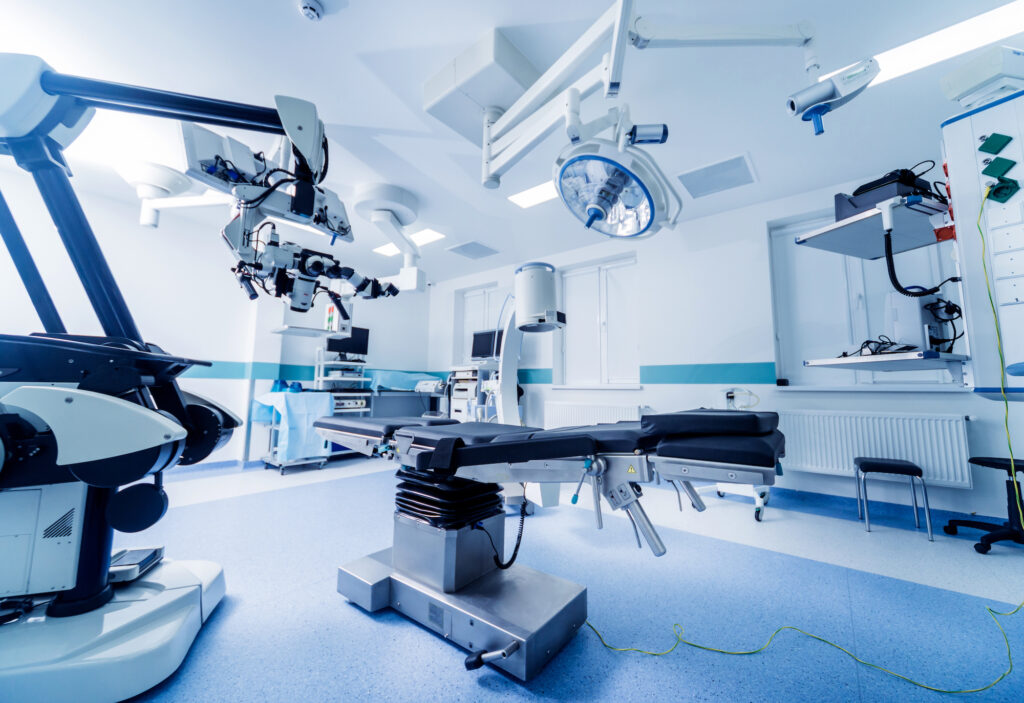
Even with the U.S. Food and Drug Administration (FDA) heavily regulating the manufacturing and use of medical devices, a shocking number of people are affected every year by these faulty products. According to the International Consortium of Investigative Journalists, defective or faulty medical devices have resulted in nearly two million injuries and more than 80,000 deaths in the past decade. If you or a loved one has been harmed by the use of an alleged faulty medical device, continue reading for next steps and resources to get the compensation you deserve.
What is Considered a Medical Device?
There is a huge range of medical devices, from simple instruments to high tech robots used during surgeries. These devices are very different, but can both cause just as much harm when not designed, manufactured, or marketed properly. When determining whether the faulty product is considered a medical device, there are two criteria it must meet. This consideration is crucial in the context of faulty product injury claims, as it directly impacts the legal recourse available to individuals who have been harmed by these products.
First, it must match the definition of a medical device according to the Food, Drug, and Cosmetic Act. This act defines a medical device heavily on its intended use and indication for use.
Per Section 201(h) of the Food, Drug, and Cosmetic Act, a device is:
An instrument, apparatus, implement, machine, contrivance, implant, in vitro reagent, or other similar or related article, including a component part, or accessory which is:
- recognized in the official National Formulary, or the United States Pharmacopoeia, or any supplement to them,
- intended for use in the diagnosis of disease or other conditions, or in the cure, mitigation, treatment, or prevention of disease, in man or other animals, or
- intended to affect the structure or any function of the body of man or other animals, and which does not achieve its primary intended purposes through chemical action within or on the body of man or other animals and
which does not achieve its primary intended purposes through chemical action within or on the body of man or other animals and which is not dependent upon being metabolized for the achievement of its primary intended purposes.
After you have determined that the product fits the definition of a medical device, you will want to search for existing product classifications that may apply to your product. This can include searching the FDA Product Classification Database or searching for similar products. If the device fits these criteria, chances are it is a medical device defined and regulated by the FDA.
What Makes a Medical Device Faulty?
A medical device can be found defective in it’s design, manufacturing, or marketing. When found faulty at any level, the company is required to correct or remove the product from where it is being used or sold. Actions taken may include inspecting the device for problems, repairing the device, re-labeling the device, notifying and monitoring patients or consumers, or destroying the device altogether. Ensuring these steps are taken effectively can be crucial in preventing medical malpractice related to defective medical devices.
The U.S Food and Drug Administration (FDA) keeps a database of all medical device recalls. If you or a loved one has suffered from serious health problems, one of the first resources you should look into is the Medical Device Recall Database. If a product you own or use is in this database, it is because it has been reported and is proven to cause serious health issues and even death. Additionally, if the product has been added to this database, a recall or action of some extent has probably already been issued. You should contact the manufacturer of the device and seek medical help from a doctor to address any health issues or symptoms you are experiencing.
If the device you believe to have caused your health issues is not in the database, you should reach out to the company and make them aware of your findings and symptoms. From there, the company may voluntarily recall their product and notice the FDA of their recall. However, if the company does not voluntarily recall their own product, you may have to take further action. The FDA has a voluntary reporting form that both health professionals and patients can fill out called MedWatch. We also recommend that you reach out to an experienced product liability attorney, such as the ones at our Cochran Firm Philadelphia office. We will walk you through the process of reporting a faulty medical device to the FDA, and filing a claim against the company or manufacturer should we feel you have a case.
Common Consequences of Faulty Medical Devices
Hundreds of devices have been removed, corrected, and permanently recalled over the years. In 2020 alone thus far,thirteen medical devices have been recalled by the FDA, including pumps, ventilators, and needles. Common effects of faulty devices are infection, injury, incorrect dosage, incorrect diagnoses, and unfortunately death. Below are the 3 most recent medical device recalls to date.
Medtronic Recalls Pipeline Flex Embolization Devices Due to Risk of Device Fracture. The FDA classified this recall as a Class I recall, meaning it may cause serious injury or death. Medtronic’s device was created to treat brain aneurysms, but was found faulty because of a risk that the device could fracture while being placed inside of the patient, leaving pieces in the patient’s bloodstream. The FDA received 50 Medical Device Reports, with ten injuries and one death.
CME America Recalls BodyGuard Microset Infusion Sets for the BodyGuard Infusion Pump System Due to Risk of Under-Infusion. The FDA classified this recall as a Class I recall, meaning it may cause serious injuries or death. The BodyGuard Infusion Pump’s design incorporated an extended section of tubing longer than standard lengths, prohibitively restricting medication flow. The BodyGuard Infusion Pump System received three complaints of under-infusion.
Becton Dickinson (BD) CareFusion 303 Inc. Recalls Alaris System Infusion Pumps Due to Software and System Errors. Also classified as a Class I recall by the FDA, this system was an infusion pump and vital signs monitoring system. Multiple system errors, software errors, and use-related errors lead to delay in infusion, interruption of infusion, slower than expected delivery of medication (under-infusion), and faster than expected delivery of medication (over-infusion). There were fifty-five reported injuries and one death.
Visit Us Today
If you believe you or a loved one’s health has been negatively affected by a faulty medical device, we recommend that you seek professional guidance from an experienced attorney immediately. When filing a product liability claim, you will not be going up against a single person, but rather a large corporation with many resources. You deserve a lawyer on your side who knows how to deal with these powerful interests and one who has a proven record of getting compensation. If you are looking for a product liability lawyer in the Philadelphia area of Pennsylvania, please contact The Cochran Firm today to schedule a FREE initial consultation.
